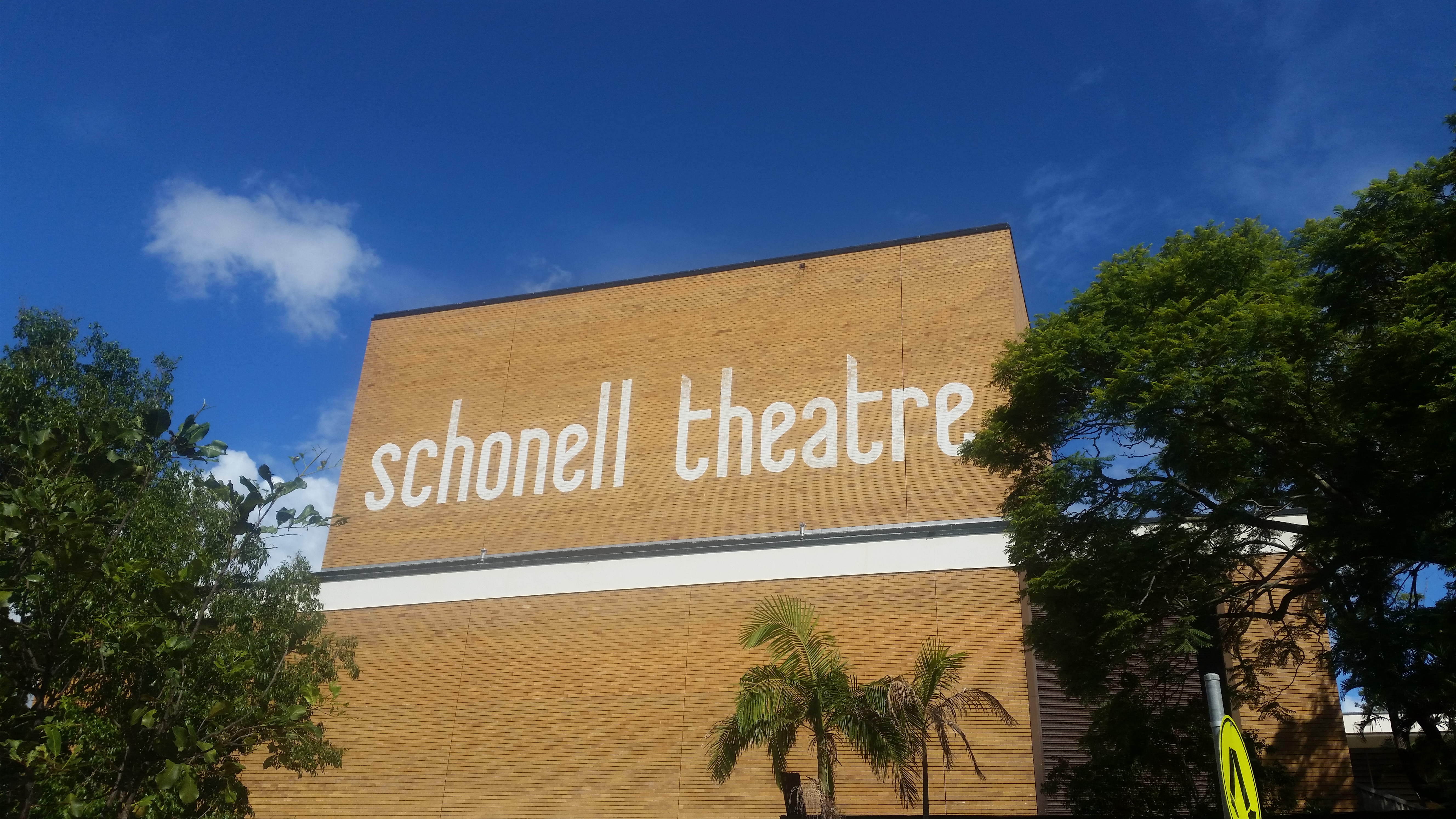
The recent reappearance of the Schonell Theatre in news headlines seemed to present an unmissable opportunity for us to wax lyrical about the building, and to remind readers why it’s important that performing arts stays in student hands.
When UQ students built the Schonell Theatre in 1970, Queensland was two years into what would become the brutal nineteen-year reign of Premier Joh Bjelke-Peterson. Brisbane at the time was thick with corruption, police brutality, and midnight demolitions of National Trust listed buildings (like the original Cloudland, may it rest in peace). But Schonell’s independence, and its situation on a university campus, made it a safe haven for political discussion and the kind of creative works that could never have been expressed on the street or in the open.
This radically independent attitude found the theatre strong allies in 4ZZZ, the community radio station which formed five years later, and a long-running student newspaper called Semper Floreat (maybe you’ve heard of it). We lost 4ZZZ in 1990, meaning that Schonell and Semper have served for the past 29 years as the last two venues on this campus that bolster student creativity (and I won’t qualify that statement until the Art Museum starts showcasing real student work for a change).
It is against this backdrop of historic resistance that, in the past few years, UQ has blundered into a plan to demolish the UQ Union Complex, which houses the Schonell. UQ’s 2018 Site Development Plan detailed that the Complex was to be replaced with a new $250 million building, but it was silent as to what might happen to theatre on campus. It seemed as if the Schonell would simply be bulldozed and forgotten.
And really, when they announced they were going to knock down the spiritual home of radical protests in Brisbane, what did they think would happen?
The University’s position
What ended up happening was that students fought back. At the end of last year, the UQ Union presented the Vice-Chancellor with a petition of 8,000 signatures calling on him to ‘Save Schonell’.
To commence this year, Vice-Chancellor Peter Høj emailed all students regarding the demolition of the Union Complex. In that email, he conceded that “the new student complex would need to replace the existing student complex and Schonell Theatre”.
This email was sent as dozens of past and current students gathered outside the Union Complex to protest its demolition.
What the student politicians are saying
Within two hours, UQU President Georgia Millroy hit back at the Vice-Chancellor with a statement of her own.
“The University of Queensland Union can only support the replacement of the Schonell Theatre on the condition that the new performing arts space is operated by UQ Union,” Ms Millroy said.
“The Union fears that UQ does not share our willingness to engage the student body in discussions around controversial topics, like the Taiwanese Film Festival that we facilitate.
“Even if UQ were willing to showcase critical and independent material, we fear that a donor or external interest who disagrees with a production could pressure UQ to shut it down,” she said.
Drivetime Radio: The Ballad of Høj and Millroy
Hours later, the Vice-Chancellor appeared on drive time radio, explaining the University’s revised position on Schonell. There he insisted that detractors of the demolition were mostly nostalgic, and that his vision was the one that would be right for students in fifty years’ time.
He also rejected the claim that he had any reason to censor the student body (and to his credit, he hasn’t come after this publication yet).
But Professor Høj, though he may wield some mystical powers, can’t predict what the University will look like in fifty years’ time — after all, it seems reasonable to predict that he would retire from the position of Vice-Chancellor before his 112th birthday in 2069. So how can students rely on his promise? We think that building a new theatre in the University’s control strengthens the position of future Vice-Chancellors, not future students.
And by the way, censorship doesn’t necessarily come in the form of a notice not to perform something. Anyone who has had to deal with UQ Sport or central room bookings knows how migraine-inducing it is to book spaces at UQ. Students may just find one day that the theatre is booked for the entire year. In fact, that’s exactly what happened to the ‘Cement Box’ theatre under Schonell, which was renamed for a distinguished alumni (whose name we have no disagreement with being stricken from campus). That theatre, which was once controlled by UQU, was ceded to the University when the Union was in financial trouble, and is now constantly booked out by the Drama school.
What next?
For now, discussions will continue around who operates the future Schonell – if the original gets demolished at all. To their credit, both Høj and Millroy gave lip service to working together on this issue when they appeared on the radio. And the University may have to give more than they get on this one: the omnipresent threat of Schonell becoming heritage listed lurks in the background of any discussion about the $250 million redevelopment of the UQ Union complex.
For now, UQ students would do well to pause a while within Schonell Theatre, listening for the quiet pulse of history that permeates its walls.
Views: 3899
